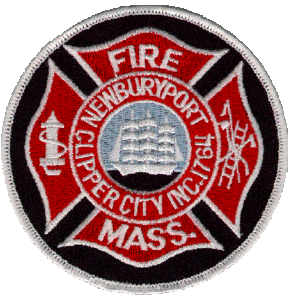Christopher LeClaire, Fire Chief
3 Greenleaf St.
Newburyport, MA 01950
For Immediate Release
Friday, Oct. 23, 2015
Contact: John Guilfoil
Phone: 617-993-0003
Email: john@jgpr.net
Newburyport Fire Department Offers Chimney Safety Tips
NEWBURYPORT — As the cold weather moves in, Chief Christopher LeClaire and the Newburyport Fire Department are providing chimney safety tips for residents who may use their fireplaces this season.
“It is vital that residents take the necessary precautions to ensure their fireplaces and wood burning stoves are safe to operate before using them,” Chief LeClaire said. “We are urging everyone to review these safety tips, as it can be very dangerous to light a fire before inspecting and cleaning out chimneys and flues.”
Most chimney fires occur due to a build-up of creosote, which is a tarry by-product of burning wood. These fires tend to break out when temperatures drop, and residents light fires in the fireplace or wood stove without a proper cleaning or inspection.
Recently, the Newton Fire Department responded to a three-alarm fire that began in the chimney and severely damaged a home.
According to the Massachusetts Department of Fire Services, in 2013 there were 883 fire incidents involving chimneys, fireplaces, and woodstoves, which were responsible for four civilian deaths, three civilian injuries, and 12 firefighter injuries, and resulted in $7.7 million in property losses.
Chief LeClaire suggests that all residents follow these tips outlined by the Massachusetts Department of Fire Services:
Purchasing:
- If you are purchasing a stove that has a chimney, make sure the stove you are purchasing to burn wood or coal is approved by Underwriter’s Laboratory or another recognized testing laboratory.
Installation:
- Prior to installing a fireplace or wood or coal burning stove, a building permit must be obtained and it must be inspected by the local building inspector prior to first use as required by Massachusetts State Building Code.
- Solid fuel heating appliances cannot share a common flue with chimney flues utilized by other solid fuel, fossil fuel, or gas fired appliances.
- Have at least a three-foot space around open fires and space heaters.
Inspections:
- Chimneys and flues should be inspected annually by a professional prior to use. Cracks in the flue or mortar joints can allow flames and heated gases to extend into the structure.
Proper Use:
- Have your chimney flue cleaned before each heating season and burn only dry, well-seasoned, hardwood to reduce creosote accumulation.
- Never use flammable liquids to start a fire.
- Never leave children unattended near the stove.
- Be sure that the damper is open before lighting a fire. Failure to do so can result in an accumulation of smoke and carbon monoxide within the home. Do not close the damper before the fire has died out and the embers are cold.
- Use a fireplace screen to prevent flying sparks and embers from falling out onto the floor.
- Install and maintain smoke alarms and carbon monoxide detectors.
- Be sure to properly dispose of ashes. Ashes from the stove or fireplace should be shoveled into a metal bucket with a metal lid, placed outside, on the ground, away from the building, to prevent fires. Do not place ashes into a paper bag or cardboard box, as ashes and embers can stay hot for days and ignite combustibles.
For more information or questions visit the Massachusetts Department of Fire Services website, or contact the Newburyport Fire Department at 978-465-4427.
###

